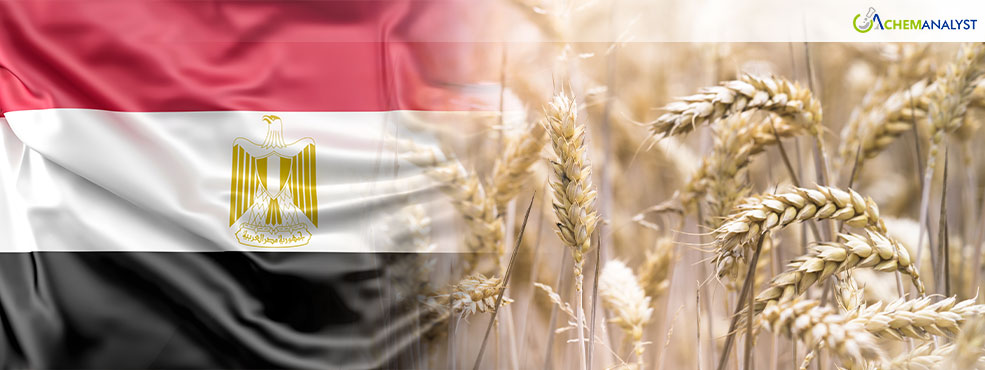Welcome To ChemAnalyst

In a historic development for Egypt’s food security, Mostakbal Misr for Sustainable Development, the country’s new state grain buyer, has received its first shipment of imported wheat, marking a significant milestone for the nation’s food supply management. The shipment, containing 28,000 metric tons of wheat, arrived at Alexandria port on December 30, 2024, aboard the vessel Mikhail Nenashev. This marks the first of several planned deliveries that will help meet Egypt’s wheat needs until the end of June 2025.
However, beyond its importance for Egypt’s domestic food supply, this move carries implications for the chemical industry, particularly for manufacturers that rely on wheat as a key raw material. Egypt’s food security is closely tied to the chemical sector, as wheat processing and its by-products play an integral role in various industries, from pharmaceuticals to bio-based chemicals.
The chemical industry in Egypt is set to experience shifts driven by Mostakbal Misr's importation efforts. Wheat by-products, such as wheat starch, wheat gluten, and wheat bran, are essential raw materials used in producing a range of chemicals. These materials are pivotal in industries like food additives, adhesives, bioplastics, and even pharmaceuticals. With the importation of wheat secured for the next several months, chemical producers in Egypt can expect a more stable supply of these by-products, which has traditionally been vulnerable to disruptions caused by fluctuations in domestic wheat production.
For Egypt's bio-based chemical industry, the arrival of imported wheat also presents opportunities to diversify feedstocks. Wheat-based bioplastics, for example, are increasingly popular as sustainable alternatives to petroleum-based plastics. With a steady supply of wheat secured, Egypt’s chemical companies could accelerate the development and production of such sustainable materials, aligning with global trends toward sustainability and reducing reliance on traditional petrochemical processes.
On a broader scale, the shift to Mostakbal Misr also signals changes in the logistics and procurement processes of key industrial sectors, including chemicals. The company’s new approach to wheat procurement may impact the availability and pricing of raw materials within the chemical industry. Potential volatility in wheat prices—driven by changes in global supply chains—could translate to fluctuating costs for chemical producers. This is particularly pertinent for industries relying on wheat by-products, which are integral to chemical production, as well as for chemical companies involved in the agri-food value chain.
As Egypt secures its wheat supply for the coming months, the ripple effect is likely to be felt across the chemical industry, where both opportunities and challenges lie in the evolving landscape of raw material availability and pricing.
We use cookies to deliver the best possible experience on our website. To learn more, visit our Privacy Policy. By continuing to use this site or by closing this box, you consent to our use of cookies. More info.
